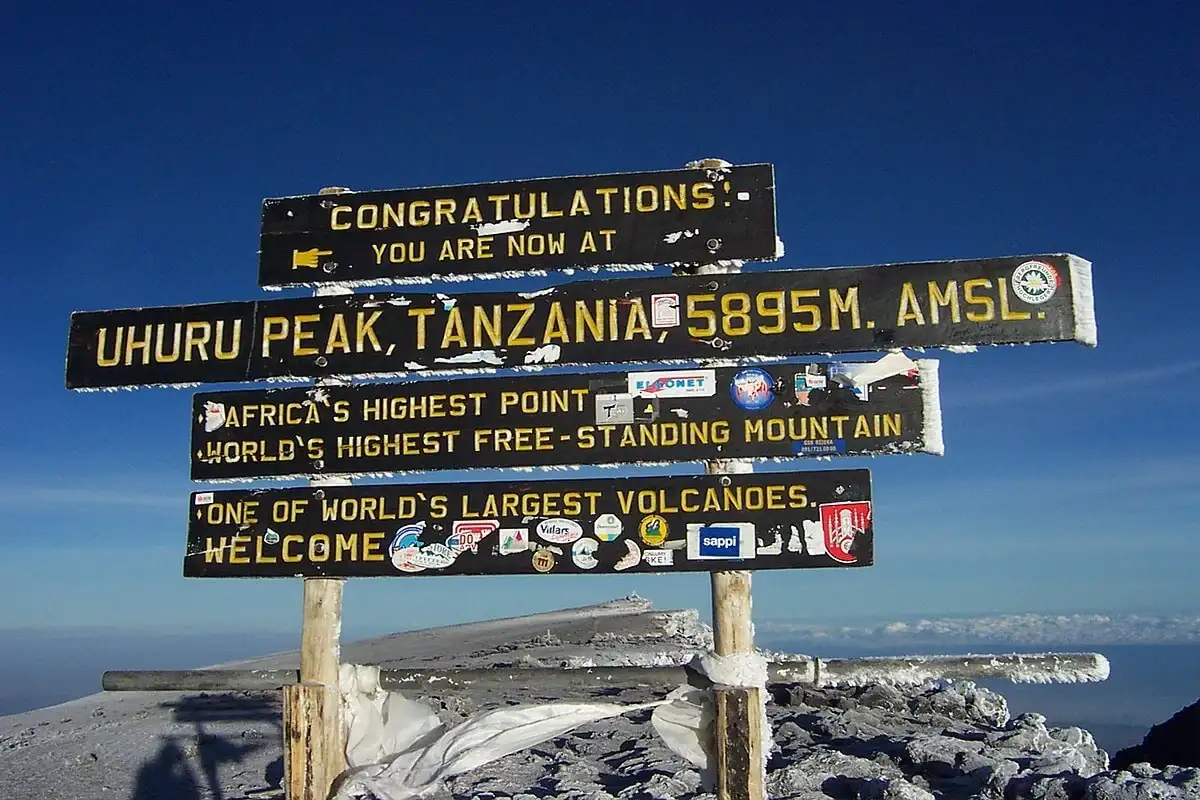Malaria on Kilimanjaro Climbing Tour – Risk, Prevention & What Trekkers Need to Know
Worried about malaria on your Kilimanjaro climbing tour? Learn about malaria risks, prevention methods, and whether you need medication before your trek.
Itinerary Prices BookIs Malaria a Risk When Climbing Mount Kilimanjaro?
While climbing Mount Kilimanjaro is a high-altitude adventure, malaria—commonly misspelled as "Maralia"—is a concern primarily at lower elevations, especially before and after your trek in places like Moshi, Arusha, and other towns in northern Tanzania. The summit areas of Kilimanjaro are too cold and high for malaria-carrying mosquitoes to survive, but precautions should still be taken during travel to and from the mountain. Malaria prevention is essential to ensure your Kilimanjaro climbing experience remains safe, smooth, and healthy. This guide covers everything from the actual risk levels to effective prevention strategies and frequently asked questions by trekkers.

Understanding Malaria Risk on Kilimanjaro
Malaria is a mosquito-borne illness caused by Plasmodium parasites, and it's transmitted through bites of infected Anopheles mosquitoes. While Tanzania is a malaria-endemic country, the risk on Mount Kilimanjaro itself is minimal because of the mountain’s altitude. Trekkers spend most of their journey above 2,000 meters, where mosquitoes cannot survive due to the cold, dry conditions.
When Is Malaria a Concern During Your Kilimanjaro Tour?
Your main risk of contracting malaria occurs in the lowlands—particularly during your stay in Moshi, Arusha, or while transiting through Kilimanjaro International Airport (JRO). This is especially true in rainy months like March to May and November when mosquito activity increases.
- High-risk zones: Moshi, Arusha, Marangu village, and nearby towns
- Low-risk zones: Kilimanjaro National Park, alpine zones, and summit areas
Should You Take Malaria Medication?
Yes. All travelers heading to Tanzania should take malaria prophylaxis as a precaution. Visit a travel clinic 4–6 weeks before your trip to discuss options such as:
- Malarone: Well-tolerated with fewer side effects, taken daily
- Doxycycline: Affordable and effective, but may cause sun sensitivity
- Lariam (Mefloquine): Weekly dose, but not suitable for everyone due to psychological side effects
Preventing Malaria During Your Trip
In addition to medication, consider these preventive tips to reduce your chances of getting bitten:
- Apply insect repellent: Use repellent with at least 30% DEET or Picaridin
- Wear protective clothing: Long sleeves and trousers in evenings are highly recommended
- Stay in screened or netted accommodations: Hotels and lodges in Moshi and Arusha often provide mosquito nets
- Avoid being outdoors at dusk and dawn: These are peak mosquito activity times
- Use insecticide-treated bed nets (ITNs): Especially in rural lodges or basic accommodations
Do You Need Malaria Pills on the Mountain?
While you won’t face malaria risk on Kilimanjaro itself, you must continue your medication as prescribed—before, during, and after the climb—to maintain full protection. Most Kilimanjaro Routes , including Lemosho, Machame , Marangu , and Rongai , take you well above the mosquito zone within the first day or two.
Additional Health Precautions for Kilimanjaro Climbers
While malaria is a low risk on the mountain, other health concerns include altitude sickness, cold exposure, and hydration-related issues. Prepare adequately with warm clothing, high-calorie snacks, and proper acclimatization schedules. Don’t let the fear of malaria overshadow your excitement—it’s manageable with basic travel precautions.
Frequently Asked Questions
Is Kilimanjaro a malaria zone?
No, Kilimanjaro’s altitude makes it inhospitable for malaria-carrying mosquitoes. The risk lies in the surrounding towns and lower regions.
Do I need malaria pills for Kilimanjaro?
Yes, for your full Tanzania itinerary. The mountain itself is low-risk, but protection is important for travel days before and after your trek.
What’s the best malaria medication for Tanzania?
Malarone is often preferred for its convenience and fewer side effects, but a doctor can help choose based on your health profile and travel plans.
What if I forget to take my malaria pills?
If a dose is missed, take it as soon as you remember. Missing doses can reduce effectiveness, so follow instructions carefully and carry extra medication.
Can I get malaria after climbing Kilimanjaro?
Yes, if you stay in mosquito-prone areas without protection. Malaria symptoms can appear up to 30 days after exposure, so remain cautious after your trek.
Can kids or elderly travelers take malaria medication?
Yes, but under medical supervision. Children, pregnant women, and older climbers should be evaluated carefully to choose the safest preventive option.
Are there malaria tests in Moshi or Arusha?
Yes, medical facilities offer rapid diagnostic testing if symptoms arise. However, prevention is far safer and more reliable than treatment after infection.
BOOKING FORM
Book your tour here
RELATED PACKAGES
- Baraka Aquarium and Nungwi Village in Zanzibar
- Diving Tour in Zanzibar
- Zanzibar Sky Diving Tour
- Dolphin Snorkeling Sandbank Tour in Zanzibar
- Horse Riding Tour in Zanzibar
- Jet Ski Tour in Zanzibar
- Jozani Forest Visiting in Zanzibar
- Quad Bike Tour in Zanzibar
- Traditional Sunset Dhow Cruise Tour in Zanzibar
- The Best Stone Town Tour in Zanzibar
- Zanzibar Butterfly Tour
MORE PACKAGES
- Mount Kilimanjaro
- Ngorongoro Crater
- Serengeti National Park
- Tarangire National Park
- Lake Manyara National Park
- Zanzibar Island
- East Africa Packages
- Tanzania Safari From Zanzibar
- Kenya packages
- Rwanda Packages
- Uganda packages
- Mikumi National Park
- Kitulo National park
- Mkomazi National park
- Selous (Nyerere National Park)
